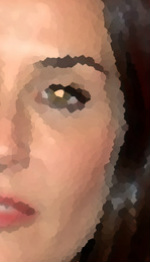 It's a little disconcerting to hear a character that you've created called "unlikeable," even if you have used those very same words to describe that character (hastening, of course, to soften the harshness of it by adding the qualifier "at times"). Like a prodigal child, it would be a sad character indeed whose author did not love him or her unconditionally. I admit I love all my characters, even the particularly nasty ones. I suspect that is because each contains at least a sliver of my own personality. That being said, I would not expect a reader to love them all and there are at least one or two who should provoke feelings of, if not hate, then at least intense dislike, however momentary and however much the reader reminds him or herself that "this is only make believe." (Although characters in novel often bring to mind people that we know and love/hate in our very real lives -- at least if the author has done her job.) 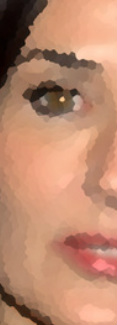 It's also a bit disconcerting because these judgments seem to come much more heavily on female characters than males. Roxane Gay wrote an excellent essay for BuzzFeed on this very topic: Not Here to Make Friends. The debate rages between the pro-likeables and the pro-unlikeables, with well-thought arguments on both sides, but one fact seems to be established: we love our difficult men (Don Draper, Hamet, MacBeth, Charles Foster Kane to name a few); women, not so much. 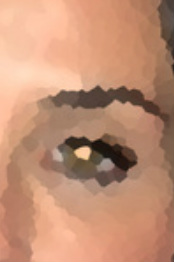 But I myself am in a light-hearted mood today, after having spent an absolutely exhilarating evening with a book club made up of lovely ladies from Des Plaines, IL. Listening to their insights and takes on the characters in my book reinforced my belief that what the reader brings to and thus takes away from a story is just as important, if not more, than what a writer puts in. Reading a book is a conversation; it always goes two ways. And that's thrilling. So I decided to approach the "likeability" factor with a touch of humor (I hope). After all, I want you to like me! 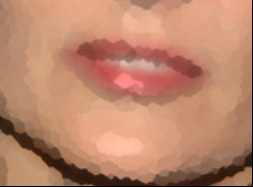 So, based on my opinion that: 1) my not-so-darling character Claire Sokol has her flaws, but that those flaws make her very human; and 2) there's at least a little bit of Claire in almost every human being on the planet; I have created a quiz on Playbuzz.com so that you may take to find out just how "Claire" you are!
0 Comments
I recently had a discussion about how authors go about deciding on names for characters in their novels and plays. This, of course, led to a quick perusal of the Internet, a lively debate and a top-ten list. Or several top-ten lists. This is what happens when librarians have too much time on their hands (which admittedly isn’t very often). 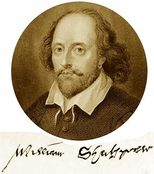 We must, of course, start with the Bard of Avon, who, for the record, I believe actually did write his own plays! Shakespeare is at his wittiest when coming up with clever, charming and apropos names for his characters. Shakespeare’s Top Ten Character Names: 1. Sir Andrew Aguecheek (Twelfth Night) Post nasal drip, anyone? 2. Sir Toby Belch (Twelfth Night) ‘nuff said. 3. Dogberry (Much Ado About Nothing) All constables should be as much of a hoot! 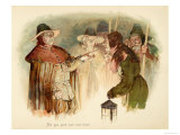 Dogberry on watch 4. Iago (Othello) Just saying the name leaves an evil taste in the mouth! 5. Launcelot Gobbo (and his dad Old Gobbo) (The Merchant of Venice) Shylock’s fun-loving, crude servant 6. Mistress Overdone (Measure for Measure) Shameless hussy 7. Mistress Quickly (Merry Wives of Windsor) Overdone’s equally shameless colleague 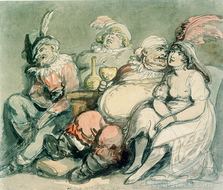 Falstaff and his Doll 8. Doll Tearsheet (Henry IV, Part 2/Henry V) Falstaff’s favorite hussy and BFF with MQ 9. Dr. Pinch (The Comedy of Errors) 10. Puck (A Midsummer Night’s Dream) Devious trickster fairy Honorable mention to Christopher Sly (The Taming of the Shrew) (Oops, guess this one goes to 11!) 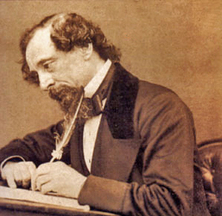 Two-pence Chuck But what about Charles Dickens? His fans will stage a thrown-down for the championship between Chuck and Will at the turn of a page. Dickens' Top Ten Character Names: 1. Uriah Heep (David Cooperfield) Could there be a better name for a villain? (Darth Vader excepted, of course) I mean, you can't think the name without conjuring up images of body waste. 2. Pumblechook (Great Expectations) Pip’s guardian -- his name sounds as loud-breathing and rotund as he is. 3. Mr. Sowerberry (Oliver Twist) Say the name and you will have the very image of the cruel, ugly undertaker on your tongue -- yuck! 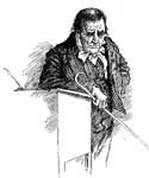 Wackford Squeers 4. Paul Sweedlepipe (Martin Chuzzelwit) Can you say “eccentric?” 5. Wackford Squeers (Nicholas Nickleby) also daughter Fanny, son Wackford, Jr. and Mrs. Squeers. The nasty caretaking family who run the orphanage. Possibly the origin of the phrase “wack-job?” 6. Polly Toodle (Dombey and Son) Plump, jolly nurse -- what else could she be with a name like that? 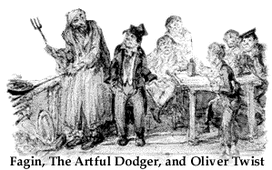 7. Bumble (Oliver Twist) True to his name 8. Fagin (Oliver Twist) Another perfectly named villain 9. Harold Skimpole (Bleak House) Notorious tightwad -- and his name evokes that character defect 10. Seth Pecksniff (Martin Chuzzlewit) One of the biggest hypocrites ever imagined with a wonderfully evocative name. 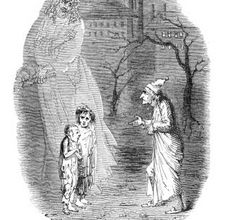 Ebenezer with the twins Ignorance and Want But we can't possibly exclude the one we all know and love: Ebenezer Scrooge (A Christmas Carol). It's a name that has entered the vernacular; everyone knows how miserly a “scrooge” is... Oops, guess this one goes to 11, too! |
AuthorTo find out more about me, click on the Not Your Average Jo tab. Archives
February 2024
Categories
All
|
 RSS Feed
RSS Feed